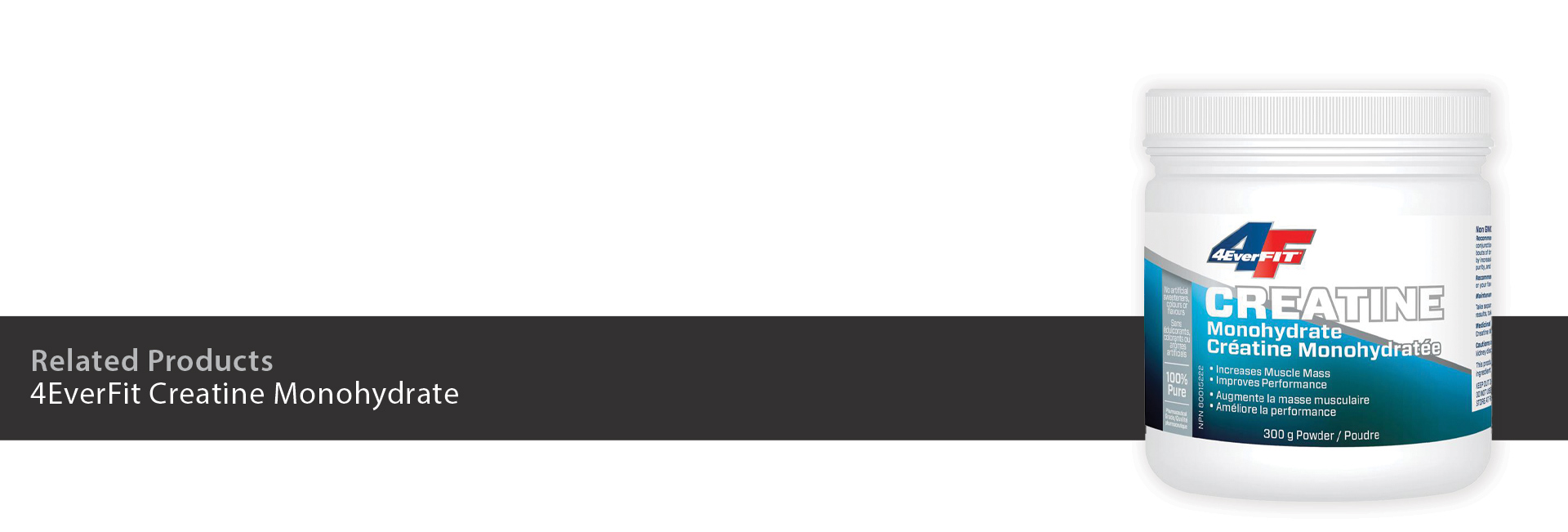

Boost Your Brain’s Power with Creatine
What is Creatine and What Does It Do?
Creatine is an organic acid that is naturally produced by the human body and is naturally found in food sources. However, it would be impossible to supplement creatine with food sources. It is transported in the blood to help energize muscles. Nearly 95% of the human body’s total creatine is stored in skeletal muscle and promotes the healthy development of lean muscle tissue in people of all ages. Extensive research in the past 30 years has shown that creatine supplementation improves the physical benefits of resistance exercises such as weight training in both men and women. In people with a variety of neuromuscular disorders, creatine increases strength and energy. Research has also found that creatine supplements can also provide cognitive benefits, supporting brain health and brain function. Creatine was once thought to be best for men and for gym-goers, but newer research has shown that almost everyone can benefit from supplementing with creatine.
Creatine has long been studied and proven an effective supplement for:
- Increasing energy capacity
- Increasing protein synthesis
- Decreasing protein breakdown
- Increased muscle mass
- Improving physical performance
It continues to be one of the most used supplements for athletes of all ages.
Boost Your Brain’s Power with Creatine
Recent research suggests that creatine monohydrate serves additional benefits to the body, particularly with cognitive function and a healthy brain.
Brain Health
Your brain takes up approximately 2% of your body’s weight, but it runs 24/7 without rest; it is your body’s powerhouse! It is shown that creatine supplementation increases the energy supply to your brain and your body’s neurons. Your brain may endure cognitive stress in suboptimal conditions. You may be tackling a lot of responsibilities, battling a lack of sleep, or hungry. Long-term stress greatly impacts your brain’s capabilities. Under chronic stress, the brain will prioritize different functions to adapt. The extreme imbalance of brain functions causes the unused functions to deteriorate, leading to other problems like memory loss. Chronic stress can shrink your prefrontal cortex— the area of your brain responsible for learning. Scientists confirm that creatine monohydrate boosts short-term mental performance.
Concussion Recovery
Creatine monohydrate supplementation can also have a major impact on brain recovery caused by traumatic injuries or concussions (mTBI). When the brain undergoes trauma, it depletes all energy, oxygen, and creatine reserves. The detrimental changes in metabolism can remain for many years. In an animal study, creatine monohydrate supplementation reduced overall brain damage by 50%. Supplementing the brain’s creatine levels diluted any disruptions in cognitive processing after experiencing trauma. In a hospital setting, creatine supplements reduce symptoms such as fatigue, dizziness, and headaches.
Memory and Neurodegeneration
Creatine may make a significant impact on your short-term and long-term memory. Researchers are studying creatine supplementation’s effects on long-term memory in elderly individuals. During a U.K.-based study, individuals averaging 76 years old noticed improved long-term memory by consuming 20g of creatine-monohydrate supplements daily. Additionally, they improved their spatial and serial recall memory. Although there is not enough research to conclude the mechanism in which creatine conducts this, researchers concluded that creatine could boost cognitive performance in elderly individuals.
Creatine and Aging
Recently published research in peer-reviewed journals shows that in older adults creatine:
- Prevents age-related muscle loss
- Improves walking, balance, sitting, standing, and stair-climbing
- Promotes greater muscle endurance
- Supports stronger knee extensions
- Plays a role in cellular energy metabolism
- Supports protein metabolism
- Increases skeletal muscle phosphocreatine concentration
- Promotes fat-free mass (lean muscle)
- Enhances exercise performance
- Provides neuroprotective effects against Parkinson’s Disease, Alzheimer’s Disease, Amyotrophic Lateral Sclerosis (ALS, also known as Lou Gehrig’s Disease), Post-Ischemia (Post-Stroke)
- Improves overall muscle strength and leads to a higher quality of life
- Stimulates increased fat-burning in combination with exercise
- Improves cognitive function
REFERENCES:
https://www.scq.ubc.ca/an-introduction-to-creatine/
https://pubmed.ncbi.nlm.nih.gov/28595527/
https://www.ncbi.nlm.nih.gov/pmc/articles/PMC3407788/
https://onlinelibrary.wiley.com/doi/abs/10.1002/cne.903430311
www.sciencedaily.com/releases/2003/08/030813070944.htm
https://www.tuw.edu/health/how-stress-a ects-the-brain/
https://pubmed.ncbi.nlm.nih.gov/30086660/
https://onlinelibrary.wiley.com/
https://www.ncbi.nlm.nih.gov/pmc/articles/
https://www.ncbi.nlm.nih.gov/pmc/articles/PMC4304302/#ref-99
Current Opinion in Clinical Nutrition & Metabolic Care. 2000 Nov;3(6):497-502.
Neurodegenerative Diseases. 2010 Dec 3. [Epub ahead of print]
British Journal of Nutrition. 2010 Dec 1:1-6. [Epub ahead of print]
Journal of Nutrition, Health & Aging. 2010 Feb;14(2):149-53.
Medicine & Science in Sports & Exercise. 2001 Dec;33(12):2111-7.

